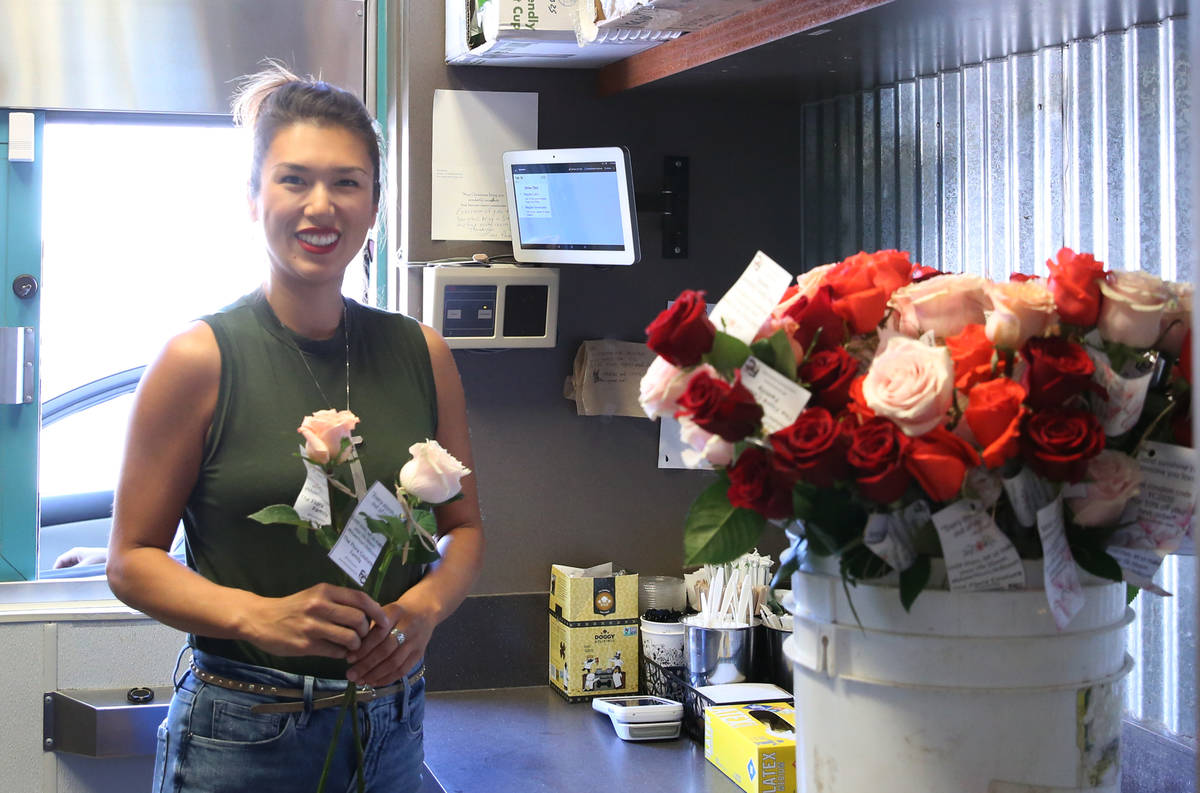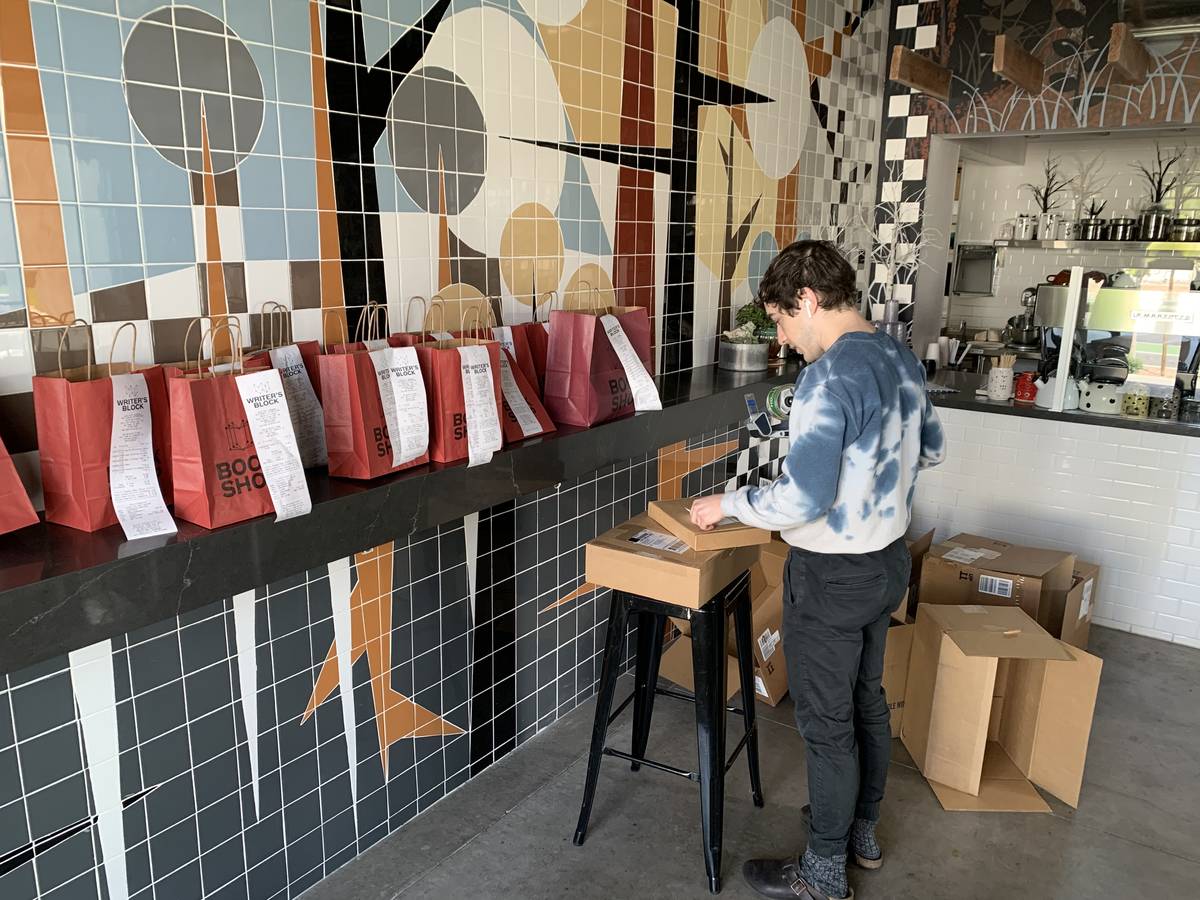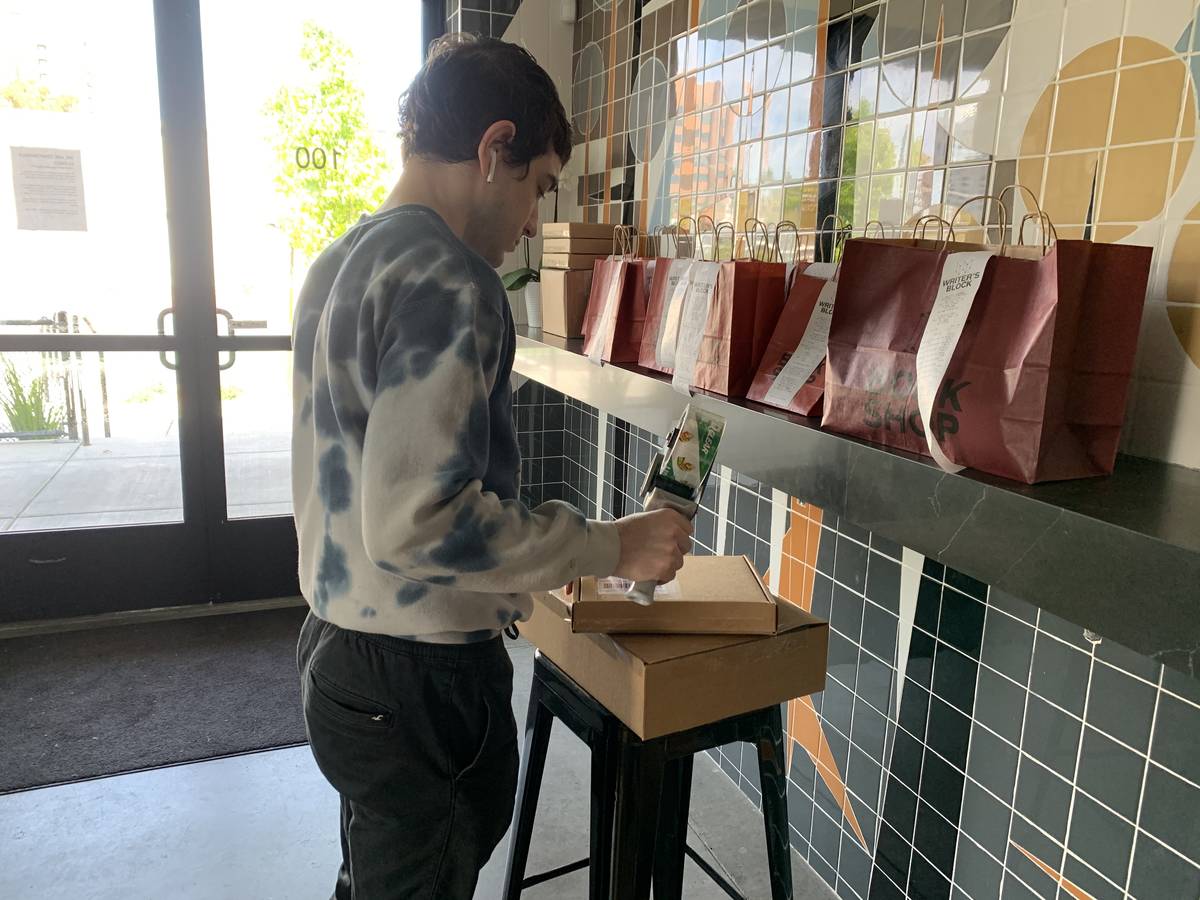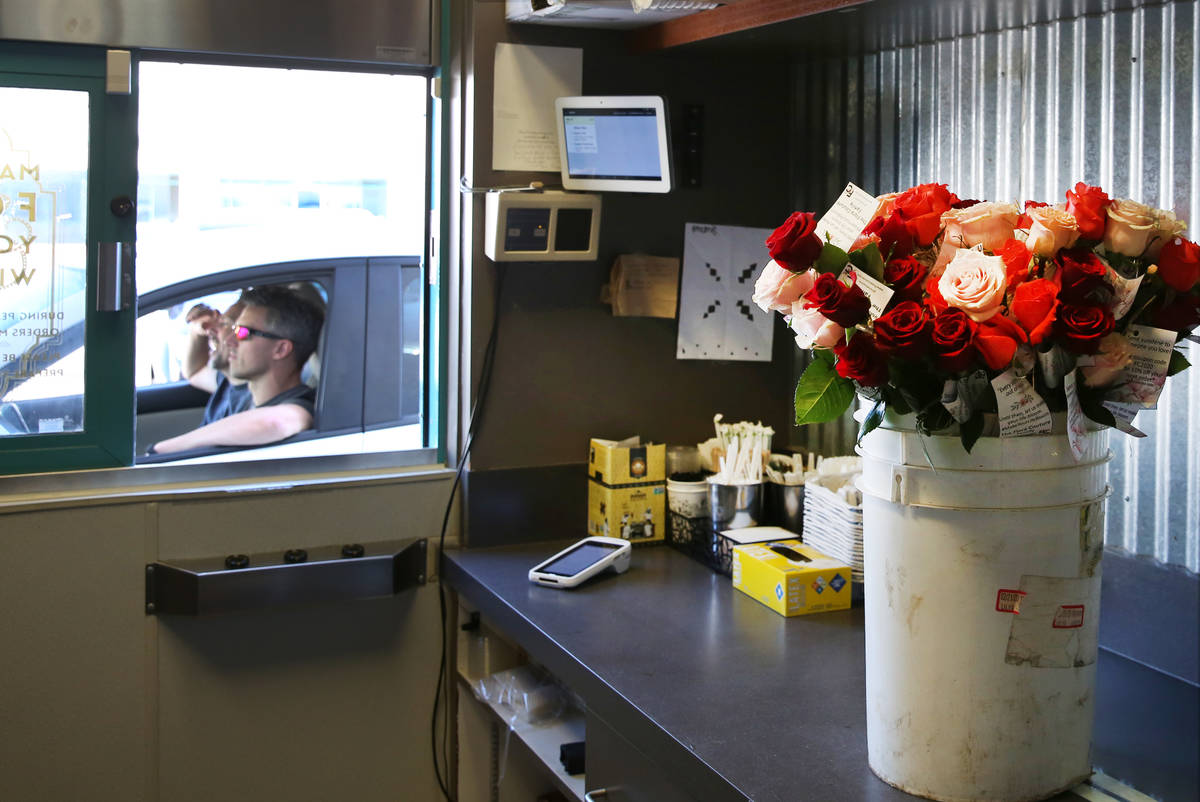Small businesses adapting with hand sanitizer, bartering, online shopping
One cafe is bartering flowers for coffee beans. A bookseller is hand-packing online orders and delivering them curbside. And an aromatherapy maker has started formulating and selling hand sanitizer.
At a time when the new coronavirus threatens not only public health and safety but also the livelihoods of small-business owners, Las Vegas entrepreneurs are adapting or upending their business models to continue serving their communities. In turn, they hope locals will continue to support them.
“We need as many small businesses open as possible,” said Kenneth Evans, president of the Urban Chamber of Commerce. “Whatever we can do to get them through this and support them, we will help ourselves in the long term.”
Evans said that, in addition to employing hundreds of thousands of workers, Nevada’s small businesses support the community in myriad ways.
Charities, youth sports teams and community-based groups often turn to small businesses for support and sponsorships, he said. And small businesses play an integral role in the political process, supporting candidates financially and through volunteer efforts.
Evans has taken to ordering curbside at local restaurants on his lunch breaks and posting about it on social media.
“It puts them in a position where they can keep staff employed and provide a service for people who make the occasional trip outside,” he said. “Anytime we can share on social media, that’s exposure for the business.”
Stephen Miller, a professor of economics at UNLV, said it is up to the federal government to hold the economy together during this crisis.
“The government is providing loans that are forgivable, which makes it a grant if they keep employees on the payroll,” he said. “There is no way locals can come up with the support the federal government can provide.”
Nonessential businesses in Nevada are shut down for the time being. Some are counting on a confluence of federal assistance, savings and a speedy recovery to sustain themselves.
But many businesses have adapted or pivoted to alternate means of community support to remain operational.
While the Fergusons Downtown marketplace, which celebrated its grand opening in December, has had to close its doors, it has turned its popular Market in the Alley into an online event. Last month’s version invited viewers to shop from 20 small vendors.
“When you spend $100 locally, $68 stays in the local economy, versus about $13-16 when you buy from a big retailer,” said Kelly Bennett, marketing director for Fergusons. “It’s more important than ever to keep that money local.”
Michael Buckham, who owns Mike’s Recovery at Fergusons, has expanded his soap and aromatherapy business to include a newly developed hand sanitizer made with ethyl alcohol and essential oils.
The Writer’s Block bookstore transformed overnight into an online retailer.
“I’m extremely worried about what the retail landscape will look like when this is over,” said co-owner Drew Cohen. “I feel like big tech companies will really benefit and a lot of small businesses may go under, allowing for more consolidation. It’s crucial to spread dollars around right now.”
Superb Maid owner Elena Ledoux is allowing customers to hire her employees to shop for groceries for them.
“I have customers who are stuck at home and afraid to go outside,” Ledoux said. “I have staff available who are well-trained on hygiene and have masks and gloves. It gives my staff jobs and is very much embraced by clients.”
Juanny Romero, owner of Sunrise Coffee and Mothership Coffee, still offers drive-thru, delivery and walk-up service. But she has also started accepting trades, like exchanging coffee beans with Flora Couture, which offered her 60 long-stem roses.
“I am a creator of community,” Romero said. “We support that by staying open. If you can make something, if you can bake bread, we’ll barter coffee.”
Romero has lost 90 percent of the business at her downtown location. But she hopes that by staying open and cutting down her own salary, she will be able to hire back the employees she needed to lay off.
Contact Janna Karel at jkarel@reviewjournal.com or 702-477-3835. Follow @jannainprogress on Twitter.


























